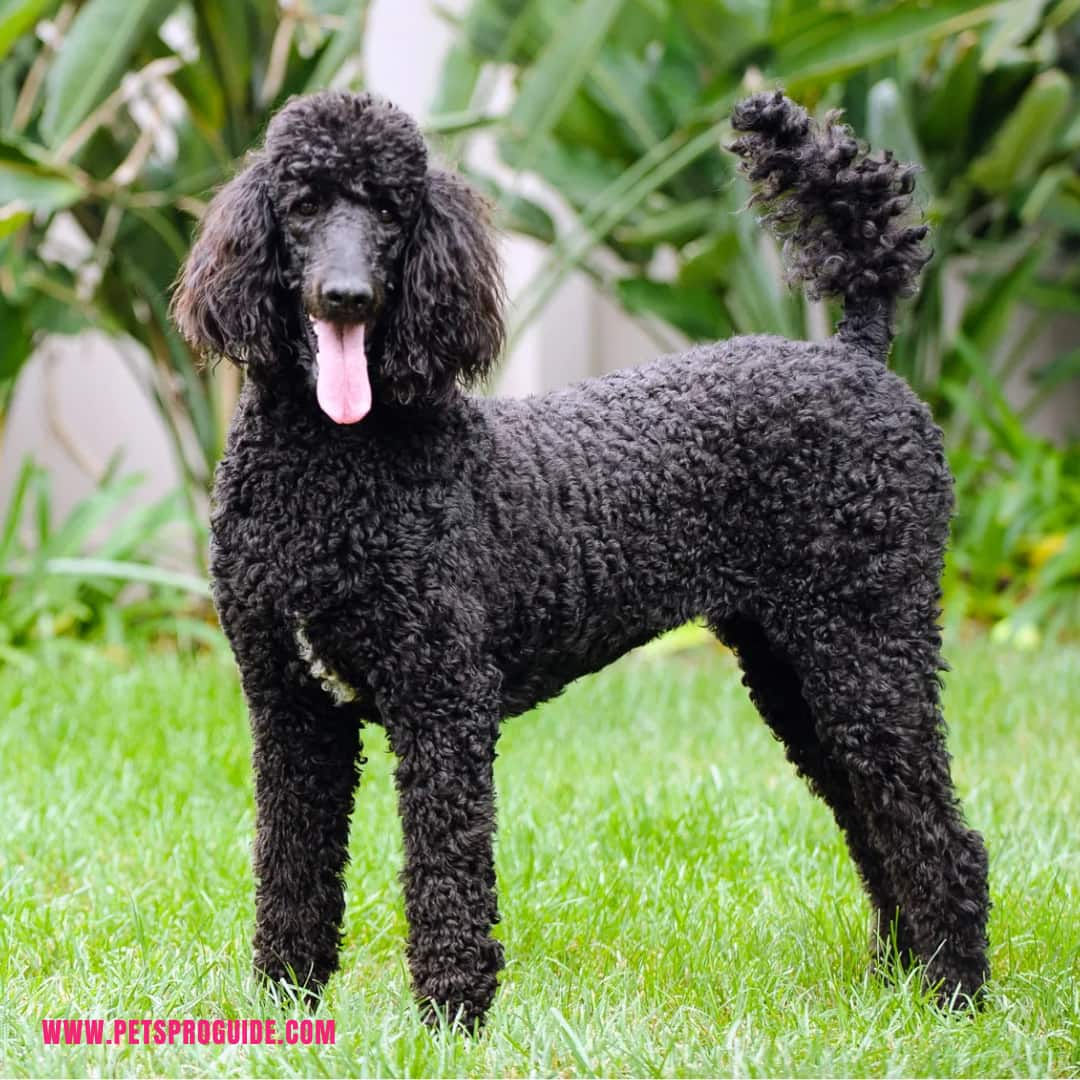Poodle Breed Information: Welcome, readers! Anastasia here, ready to divulge all you need to know about Poodle breed, complete with a delightful compilation of heartwarming pictures!
Welcome to our comprehensive guide on Poodle breed information and pictures. The Poodle is a delightful and intelligent breed that has captured the hearts of dog lovers worldwide.
Whether you’re considering adopting a Poodle or just curious about this elegant breed, this blog post is your go-to resource. We’ll explore their origin, appearance, temperament, health, and much more. Let’s dive into the world of Poodles!
Also Read: Bulldog Breed Information
- Core statistics
- History and Origins
- Other Names for Poodle Breed
- Poodle Size & Weight
- Appearance
- Personality
- Temperament
- Nutrition and Feeding
- Space Requirements
- Training & Exercise
- Poodle Grooming
- Common Poodle Breed Health Conditions
- Poodle Care Pro Tips
- Is Poodle Good Family Dog?
- What to know before you buy a Poodle?
- Poodle Breed Fun Facts
- FAQs
- 1. Q: Are Poodles hypoallergenic?
- 2. Q: Are Poodles good with children?
- 3. Q: Do Poodles require a lot of grooming?
- 4. Q: Are Poodles easy to train?
- 5. Q: How much exercise do Poodles need?
- 6. Q: Do Poodles get along with other pets?
- 7. Q: Are Poodles good watchdogs?
- 8. Q: Are Poodles prone to health issues?
- 9. Q: Do Poodles require a lot of space?
- 10. Q: Are Poodles good for first-time dog owners?
- Conclusion
- Read More
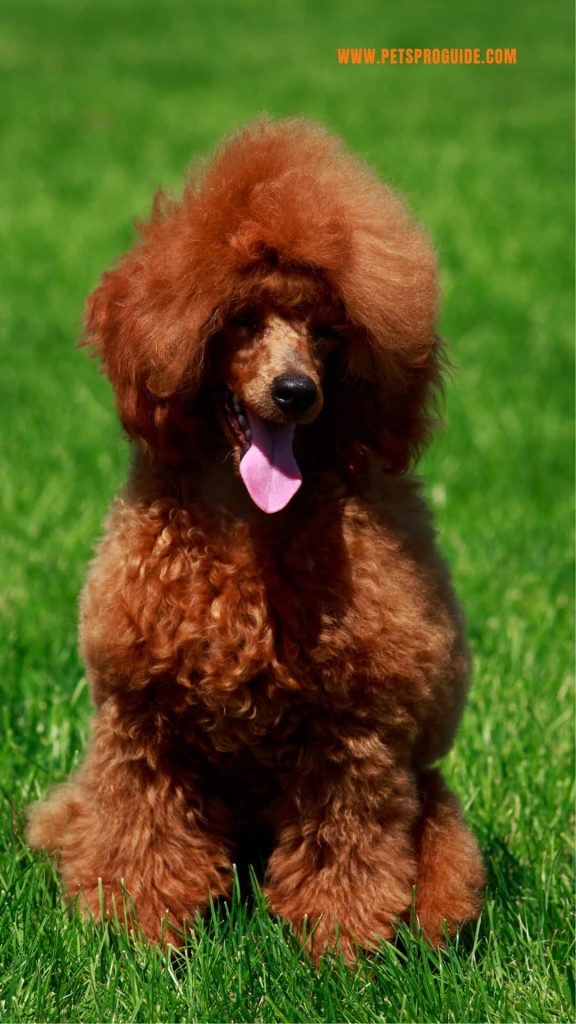
Core statistics
Here are some core statistics:
- Size: Medium
- Coat: Thick, curly, hypoallergenic
- Exercise: 1+ hours a day
- Life span: 10-12 years
- Breed group: Utility
- Temperament: Intelligent, friendly, responsive, alert
History and Origins
The Poodle is believed to have originated in Germany, where they were initially bred as water retrievers. Their name “Poodle” comes from the German word “Pudel,” which means “to splash.” Over time, Poodles became popular in France, where they were bred as companions and eventually became a symbol of elegance and sophistication.
Other Names for Poodle Breed
Here are some other names for Poodle:
- Caniche (the original French name)
- Barbone (used in some European countries)
Poodle Size & Weight
- Male Poodle:
- Size: 10-15 inches (25-38 cm) tall at the shoulder (Toy and Miniature sizes)
- Weight: 4-15 pounds (1.8-6.8 kg) for Toy, 15-20 pounds (6.8-9.1 kg) for Miniature, and 45-70 pounds (20-32 kg) for Standard Poodles
- Life Expectancy: 12-15 years
- Female Poodle:
- Size: Slightly smaller than males, typically 10-15 inches (25-38 cm) tall at the shoulder (Toy and Miniature sizes)
- Weight: Varies based on size, with females generally weighing slightly less than males.
- Life Expectancy: 12-15 years
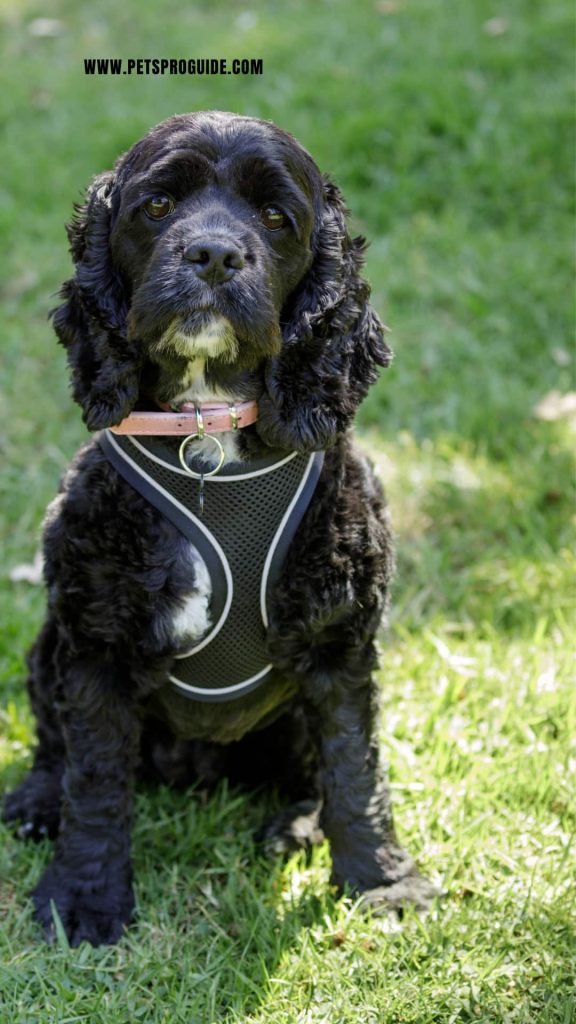
Appearance
Poodles are known for their distinctive coat and elegant appearance. They have a dense, curly, and non-shedding coat, which makes them hypoallergenic and low shedding. Poodles come in a variety of solid colors, including black, white, apricot, and silver.
Personality
Poodles are intelligent, alert, and highly trainable dogs. They are renowned for their quick wit and eagerness to learn, which makes them excel in various canine sports and activities. Their affectionate nature and sociable temperament make them great companions for families and individuals alike.
Temperament
Poodles are known for their friendly and amiable nature. They get along well with children and other pets when properly socialized. Their intelligence and ability to adapt to different situations make them a versatile breed that can thrive in various living environments.
Nutrition and Feeding
Proper nutrition is essential to support the Poodle’s energy levels and overall health. Feed them a well-balanced diet that meets their specific life stage (puppy, adult, or senior) and size (Toy, Miniature, or Standard). Consult with your veterinarian to determine the right portion sizes and dietary requirements for your Poodle.
Space Requirements
- Poodle Puppy: Poodle puppies are active and playful, requiring enough space to romp and explore. A secure backyard or open indoor area is ideal for them to burn off their energy safely.
- Adult Poodle: Adult Poodles are adaptable and can thrive in apartments or houses. However, they still need regular outdoor exercise and mental stimulation to keep them happy and prevent boredom.
Training & Exercise
Poodles are highly intelligent and eager to please, making them excellent candidates for training. Here are ten training and exercise tips to keep your Poodle engaged and well-behaved:
- Early socialization: Begin socializing your Poodle puppy with different people, places, and other animals from an early age.
- Positive reinforcement: Use reward-based training with treats and praise to motivate and reinforce good behavior.
- Basic commands: Teach essential commands like sit, stay, come, and heel for better control.
- Mental stimulation: Engage their minds with puzzle toys and training exercises to prevent boredom.
- Obedience training: Poodles excel in obedience, so advanced training can be both fun and challenging.
- Leash training: Train your Poodle to walk politely on a leash to prevent pulling during walks.
- Off-leash training: Practice recall commands in a secure, fenced area to ensure they come when called.
- Clicker training: Incorporate clicker training to mark desired behaviors and speed up the learning process.
- Canine sports: Participate in agility, obedience, or other canine sports to keep your Poodle physically and mentally fit.
- Consistency and patience: Use consistent cues and commands, and be patient during the training process.
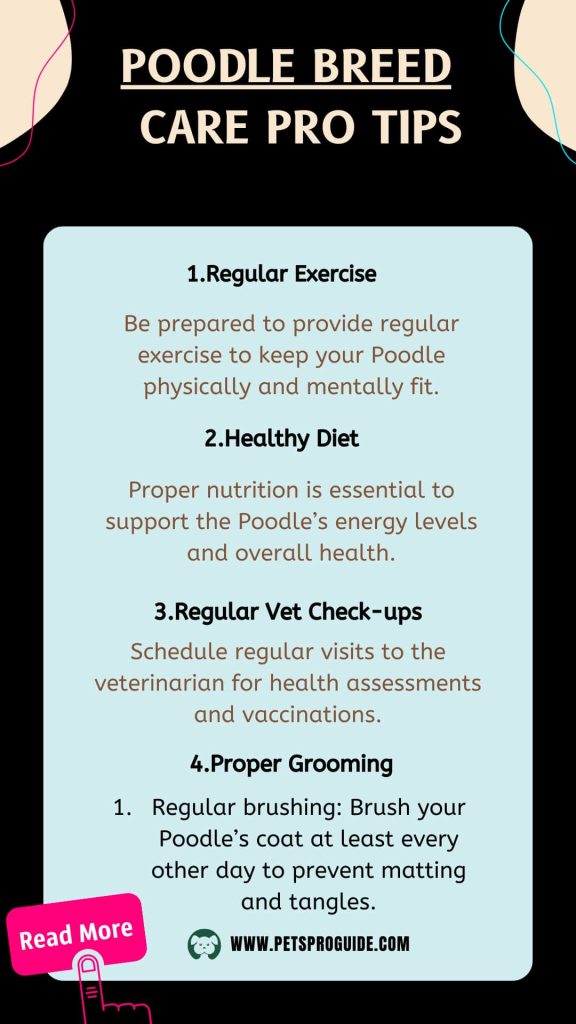
Poodle Grooming
Poodles have a unique coat that requires regular maintenance. Here are five grooming tips to keep your Poodle looking fabulous:
- Regular brushing: Brush your Poodle’s coat at least every other day to prevent matting and tangles.
- Professional grooming: Schedule regular visits to a professional groomer for haircuts and coat maintenance.
- Ear cleaning: Check and clean your Poodle’s ears regularly to prevent ear infections.
- Dental care: Brush their teeth regularly and provide dental chews to maintain good oral hygiene.
- Eye care: Keep the area around their eyes clean and free from tear stains.
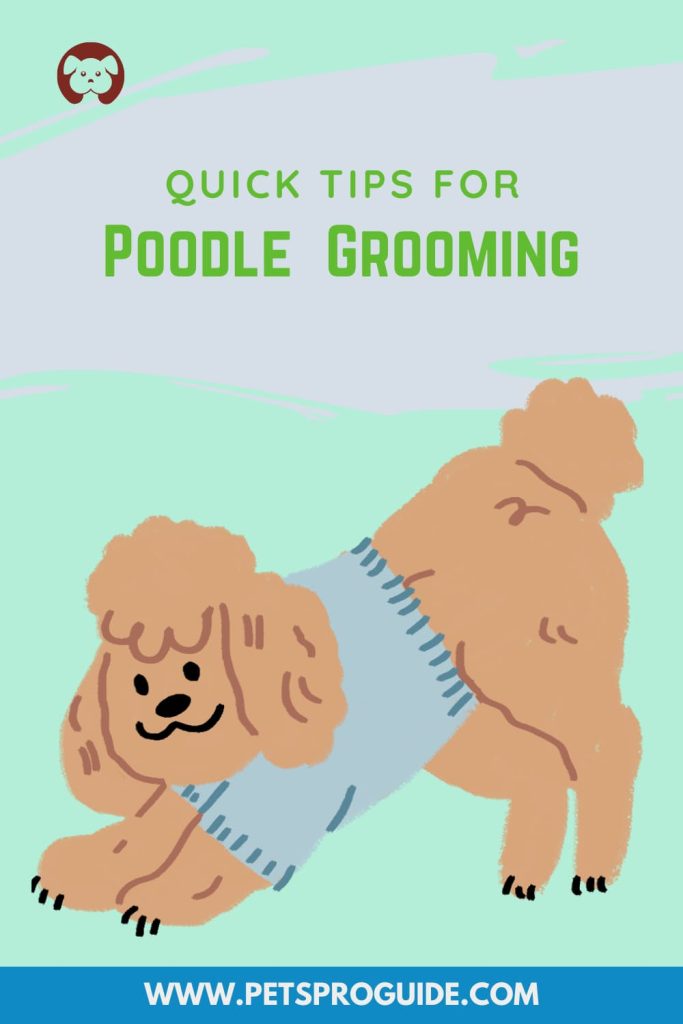
Common Poodle Breed Health Conditions
While Poodles are generally healthy dogs, they may be prone to certain genetic health conditions. Here are ten common health conditions in Poodles:
- Hip Dysplasia
- Progressive Retinal Atrophy (PRA)
- Addison’s Disease
- Epilepsy
- Von Willebrand’s Disease (VWD)
- Bloat (Gastric Dilatation Volvulus)
- Patellar Luxation
- Thyroid Issues
- Ear Infections (due to their floppy ears)
- Allergies
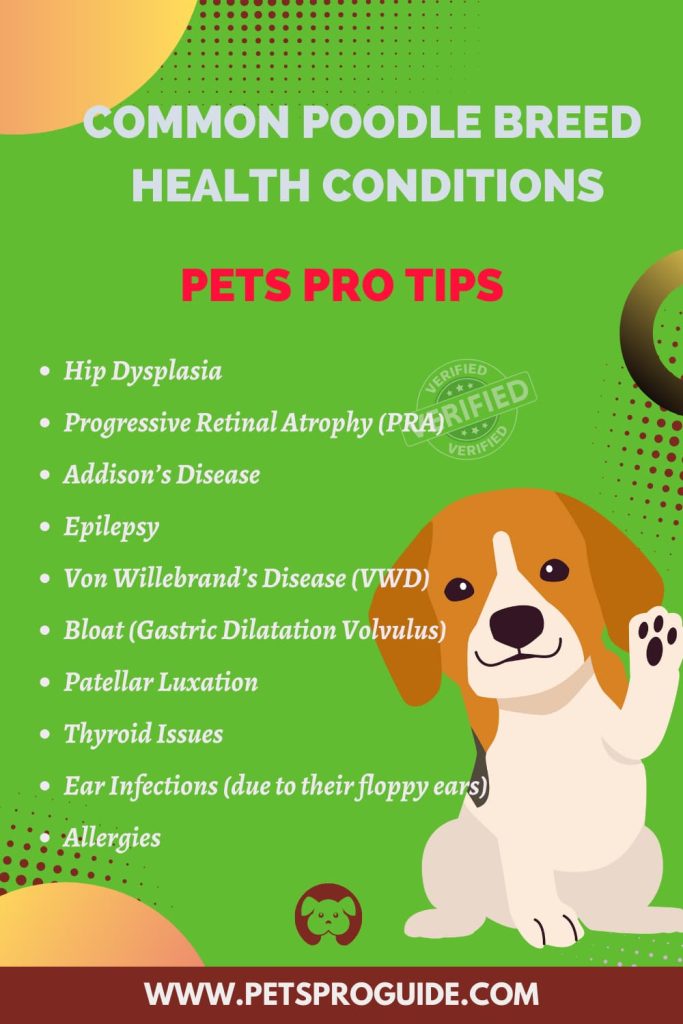
Poodle Care Pro Tips
Here are ten care tips to ensure your Poodle’s well-being and happiness:
- Regular veterinary check-ups
- Provide a balanced diet and monitor food intake
- Regular exercise and mental stimulation
- Socialization and training from an early age
- Safe and secure fencing for outdoor play
- Dental care and oral hygiene
- Regular grooming to maintain a healthy coat
- Monitor joint health, especially in older dogs
- Address any health issues promptly
- Provide lots of love and attention, as Poodles thrive on companionship.
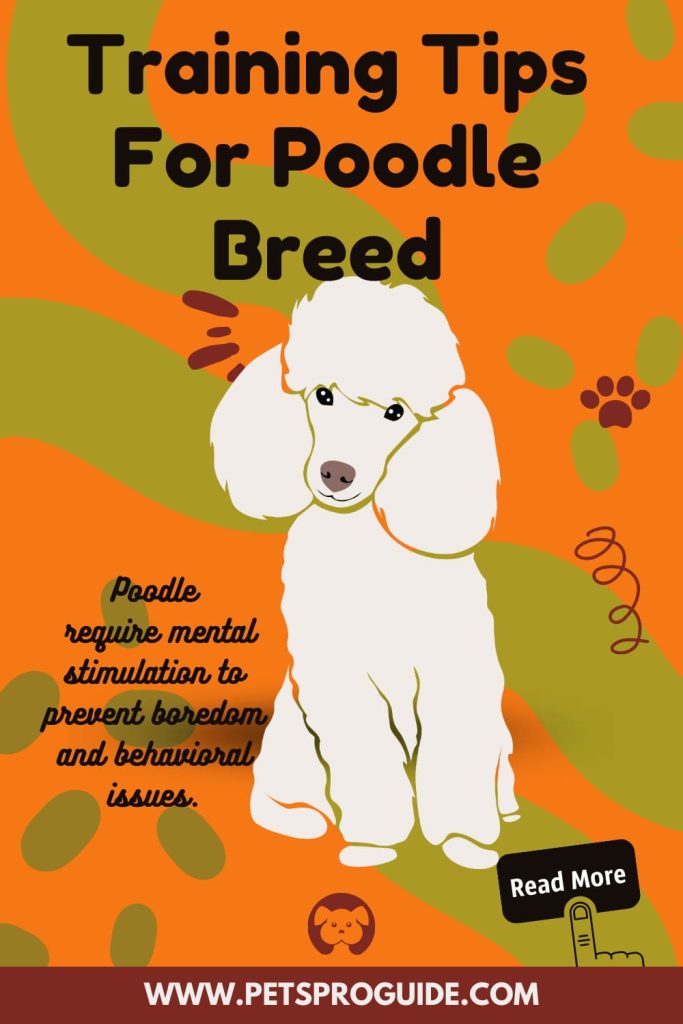
Is Poodle Good Family Dog?
Absolutely! Poodles are wonderful family dogs due to their friendly, affectionate nature and intelligence. They get along well with children and other pets, making them a great addition to multi-pet households.
What to know before you buy a Poodle?
Before bringing a Poodle into your home, consider these ten important points:
- Grooming requirements: Poodles require regular grooming to maintain their unique coat.
- Training commitment: Poodles are smart and need consistent training and mental stimulation.
- Exercise needs: Be prepared to provide regular exercise to keep your Poodle physically and mentally fit.
- Socialization: Early and ongoing socialization is essential to ensure they are well-behaved around people and other animals.
- Allergies: Poodles are a hypoallergenic breed, but people with severe allergies should spend time with Poodles before bringing one home.
- Time and attention: Poodles thrive on companionship and need time and attention from their families.
- Health screening: Choose a reputable breeder who conducts health screening tests on their breeding dogs to ensure healthier puppies.
- Regular vet care: Be prepared for regular veterinary check-ups and potential health issues as they age.
- Space requirements: Poodles can adapt to various living situations, but they need enough space to move and play.
- Patience and love: Poodles form strong bonds with their families, so show them patience, love, and care throughout their lives.
Poodle Breed Fun Facts
Before bringing a Poodle into your home, consider these ten important points:
- Grooming requirements: Poodles require regular grooming to maintain their unique coat.
- Training commitment: Poodles are smart and need consistent training and mental stimulation.
- Exercise needs: Be prepared to provide regular exercise to keep your Poodle physically and mentally fit.
- Socialization: Early and ongoing socialization is essential to ensure they are well-behaved around people and other animals.
- Allergies: Poodles are a hypoallergenic breed, but people with severe allergies should spend time with Poodles before bringing one home.
- Time and attention: Poodles thrive on companionship and need time and attention from their families.
- Health screening: Choose a reputable breeder who conducts health screening tests on their breeding dogs to ensure healthier puppies.
- Regular vet care: Be prepared for regular veterinary check-ups and potential health issues as they age.
- Space requirements: Poodles can adapt to various living situations, but they need enough space to move and play.
- Patience and love: Poodles form strong bonds with their families, so show them patience, love, and care throughout their lives.
FAQs
1. Q: Are Poodles hypoallergenic?
2. Q: Are Poodles good with children?
3. Q: Do Poodles require a lot of grooming?
4. Q: Are Poodles easy to train?
5. Q: How much exercise do Poodles need?
6. Q: Do Poodles get along with other pets?
7. Q: Are Poodles good watchdogs?
8. Q: Are Poodles prone to health issues?
9. Q: Do Poodles require a lot of space?
10. Q: Are Poodles good for first-time dog owners?
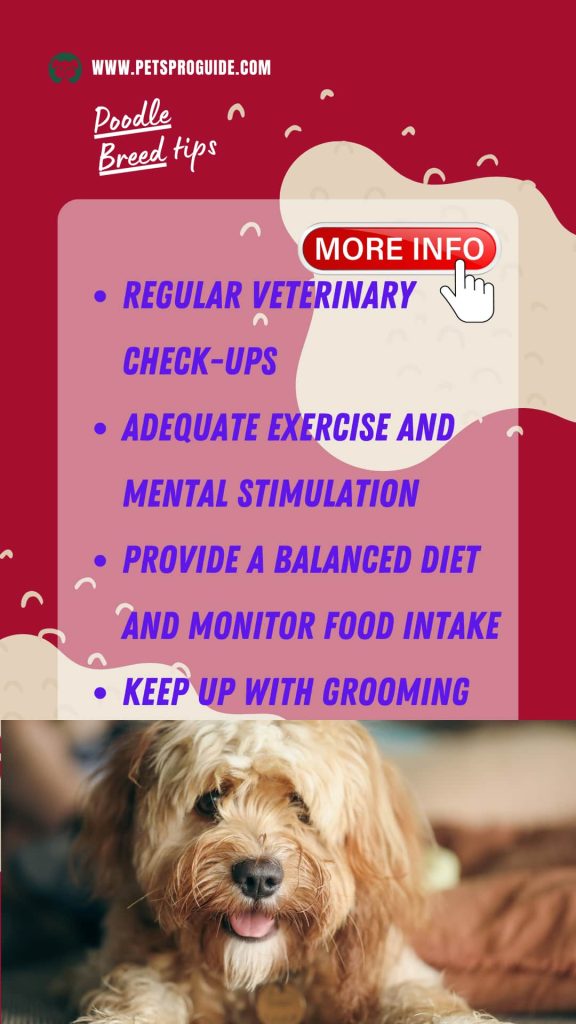
Conclusion
Poodles are a versatile and intelligent breed with an elegant and sophisticated appearance. Whether you’re looking for a family companion, a service dog, or a talented performer in canine sports, the Poodle has something special to offer. With their affectionate nature and hypoallergenic coat, they make wonderful additions to families and individuals alike.
However, their grooming needs and training requirements should not be underestimated, so be prepared to invest time and effort in keeping your Poodle happy and well-behaved. Overall, with the right care and love, a Poodle can be a loyal and cherished companion for many years to come.
If you really enjoyed the article “Poodles Breed Information and Pictures,” then I would be very grateful if you’d help it spread by emailing it to your friends or sharing it on Twitter, Instagram, or Facebook. Thank you!

